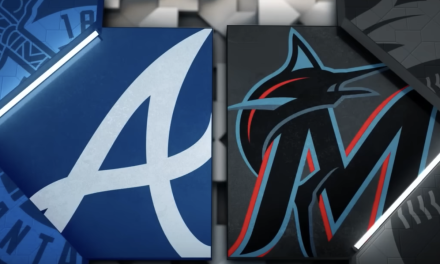Florida Governor Ron DeSantis botched his Presidential run’s launch night tonight on Twitter. There was a 30-minute late start due to tech issues. Then the entire conversation with Elon Musk was muffled, awkward, and weird. The launch night of a presidential run can be a significant moment in a candidate’s campaign. It sets the tone for the entire campaign and can have a substantial impact on its success. Here are a few reasons why the launch night is important:
- First Impressions: The launch night offers the candidate an opportunity to make a strong and memorable first impression on the public and media. It sets the stage for how the candidate will be perceived throughout the campaign and beyond. A well-executed launch can generate enthusiasm, establish credibility, and attract media attention.
- Momentum and Media Coverage: A successful launch night can generate significant media coverage, providing the campaign with valuable exposure. Media attention helps spread the candidate’s message, reach a broader audience, and increase name recognition. Positive coverage and momentum from the launch can propel the campaign forward, attracting supporters and donors.
- Fundraising: The launch night is often a critical time for fundraising. Candidates rely on the excitement and attention generated by the launch to motivate supporters to contribute financially to the campaign. A strong fundraising start can provide the necessary resources to build a robust campaign infrastructure, hire staff, and invest in advertising and outreach efforts.
- Rallying Supporters: The launch night serves as an opportunity to rally supporters and generate grassroots enthusiasm. It can be an energizing event where the candidate communicates their vision, values, and policy priorities, inspiring supporters to get involved, volunteer, and actively participate in the campaign.
- Differentiation: The launch night allows the candidate to distinguish themselves from competitors and outline their unique selling points. It’s a chance to showcase their qualifications, experience, and policy positions, highlighting what sets them apart from other candidates in the race.
While the launch night is important, it is essential to recognize that a successful presidential campaign requires a sustained effort over an extended period. The launch is just the starting point, and candidates must maintain momentum, engage with voters, adapt to changing circumstances, and navigate a complex political landscape to secure the nomination and win the presidency.
Past Opening Night Presidential Campaign Failures
While there have been instances of challenges and setbacks in presidential campaigns, it’s important to note that evaluating a campaign’s success or failure based solely on its opening night may not provide a comprehensive picture. Political campaigns are complex endeavors that evolve over time, and setbacks early on do not necessarily determine the ultimate outcome. However, here are a few examples of opening night challenges faced by past presidential campaigns:
- Edmund Muskie (1972): During the 1972 Democratic primary campaign, Senator Edmund Muskie was considered the frontrunner. However, his campaign faced a significant setback on its opening night in New Hampshire. Muskie responded emotionally to a critical newspaper editorial, and his teary-eyed defense in the snow became a memorable moment that was perceived by some as a sign of weakness. Although Muskie won the New Hampshire primary, his campaign never fully recovered from the opening night incident.
- Howard Dean (2004): Former Vermont Governor Howard Dean‘s 2004 Democratic presidential campaign gained considerable momentum through grassroots support and anti-war sentiment. However, Dean’s infamous “Dean Scream” during his Iowa Caucus concession speech on the campaign’s opening night became a memorable moment that received extensive media coverage. The passionate and animated speech, combined with an audio distortion, led to perceptions that Dean was overly emotional or out of control, which ultimately affected his campaign’s trajectory.
- Rick Perry (2012): Governor Rick Perry of Texas entered the 2012 Republican presidential primary race with high expectations. However, during a televised debate on the opening night of his campaign, Perry struggled to remember one of his policy proposals, famously uttering the phrase “Oops” on stage. The incident significantly damaged Perry’s credibility and became a defining moment of his campaign, contributing to a decline in his support.
- Jeb Bush (2016): Former Florida Governor Jeb Bush, seen as a strong contender for the 2016 Republican presidential nomination, faced challenges from the start. Despite significant fundraising and political experience, Bush’s campaign failed to gain significant traction. The opening night of his campaign was overshadowed by high expectations and the perception that he was the establishment candidate, which did not resonate well with a portion of the Republican electorate seeking an outsider candidate.
It’s worth noting that while these opening night incidents had an impact on their respective campaigns, they were not the sole determinants of their outcomes. Numerous factors contribute to a campaign’s success or failure, including candidate performance, messaging, policy positions, campaign strategy, voter sentiment, and external events. Presidential campaigns are dynamic and involve a series of ups and downs, requiring candidates to adapt, overcome challenges, and build momentum over the course of the race.































South Florida Media Comments